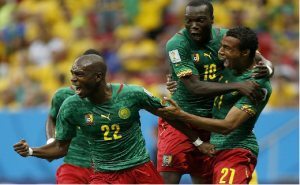Mohamed Salah, Didier Drogba, Samuel Eto, and Sadio Mane just to mention a few have been ambassadors and examples of top-tier talents that Africa possesses.
These name when mentioned leads us all to speak one language “Sports!” Skills and talents like theirs are abundant on the continent. And if treated properly can potentially be an engine for massive socio-economic growth in Africa.
However, the primary resource that Africa lacks is the infrastructure to support it. Governments need to take the necessary initiatives to prioritize sports as a potential driver for growth. Sports can generate millions of dollars, if not billions.
For decades, Western countries have flooded their sports industry with investment as they have realized the amount of revenue this sector adds to their economies. Deloitte’s 2019/2020 annual review of the European Football market illustrated that the European leagues had overall revenues of EUR25.2 billion, of which EUR 15.1 billion was generated by the “Big five” (the German Bundesliga, the United Kingdom’s Premier League, Italy’s Serie A, France’s Ligue 1 and Spanish La Liga).
With such revenues being generated, governments can reinvest money back into the sports industry to further the agenda, repeating the cycle and creating an ecosystem that automatically regenerates itself every financial year.
Africa can also do the same, but this can be achieved if investment in our infrastructure becomes a priority for governments on the continent. For instance, we saw in the 2021 Africa Cup of Nations held in Cameroon, how thousands of football fans travelled across Africa to come to cheer their national teams, and with that came the potential for an economic boost to local businesses. Be it roads, health facilities, or hotels.
Football infrastructure and communication networks will not only generate jobs for the people but seduce investors and welcome taxpayers. As the Barbadian Prime Minister remarked Mia Mottley whose country boasts a large population of African Descent has seen economic benefits from promoting cricket hailed Africa’s athletic and economic potential, mentioning the continent has “ the ability to create opportunities for so many” through excellence in sports.
 For instance, the Cameroonian government invested over CFA 520 billion (USD 885 million) in renovating and upgrading sports infrastructure, hospitals, stadiums, roads, airports, hotels, and other related facilities. The amount spent on this sports tournament was the highest ever. Long after the tournament, Cameroon will benefit from the renovations and upgraded infrastructure, which will increase its global exposure and provide opportunities for more foreign direct investment.
For instance, the Cameroonian government invested over CFA 520 billion (USD 885 million) in renovating and upgrading sports infrastructure, hospitals, stadiums, roads, airports, hotels, and other related facilities. The amount spent on this sports tournament was the highest ever. Long after the tournament, Cameroon will benefit from the renovations and upgraded infrastructure, which will increase its global exposure and provide opportunities for more foreign direct investment.
It is time for African governments to create stronger policies that will incubate the sports industry whiles it is in the infancy stage. The sector can rapidly increase Africa’s riches because of its primary resource “1.3 billion people” who possess raw talent that could spark a new vision for the continent. The talents are readily available, but they are seeking opportunities overseas, thus generating revenues abroad and not for their own countries.
Again, African governments need to invest and allocate grants to develop and maintain sports infrastructure in local games. By providing them with these local platforms, they can help develop the economies, as well as nurture homegrown talents, and create business opportunities. For example, South Africa has taken the lead In Africa by adopting sports development as part of its.
“Horizon 2025 Strategy”, aims to develop sports and its values in everyday life to create a nation with a melting pot of champions.
But this cannot be achieved if there is no inclusiveness from the various stakeholders. Their contributions cannot be overlooked if we want to achieve this goal. Meaning that every institution has to be involved to, work together to build and support the sports industry.
Hence, ensuring that the maximum returns are realized, will bring about peace and success in the industry.
To administer a successful sports industry on the continent, the governments will again need to integrate sports into the education system to help develop the culture from a young age. As young people engaging in sports acquire important life skills such as communication, collaboration, and leadership skills that increase their confidence and better qualify them for the labour market.
For instance, countries like Ethiopia, have integrated the Sports2Work method that trainers use to teach children and young people at vocational schools skills they will need in the labour market. Kenya has also incorporated the Sports for Development approach into training for trainers to disseminate it across the country through the Football Kenya Federation.
Namibia, Mozambique, and Togo have all partnered in the Sports for Development project commissioned by the German Federal Ministry for Economic Cooperation and Development (BMZ) from 2019 to 2022.
To promote human and economic development, we must bet on sports. As we try to take the risk in this sector, we need to be committed and ready for the task ahead. But the million-dollar question we ask African governments is “what are they willing to sacrifice to achieve this goal?”


